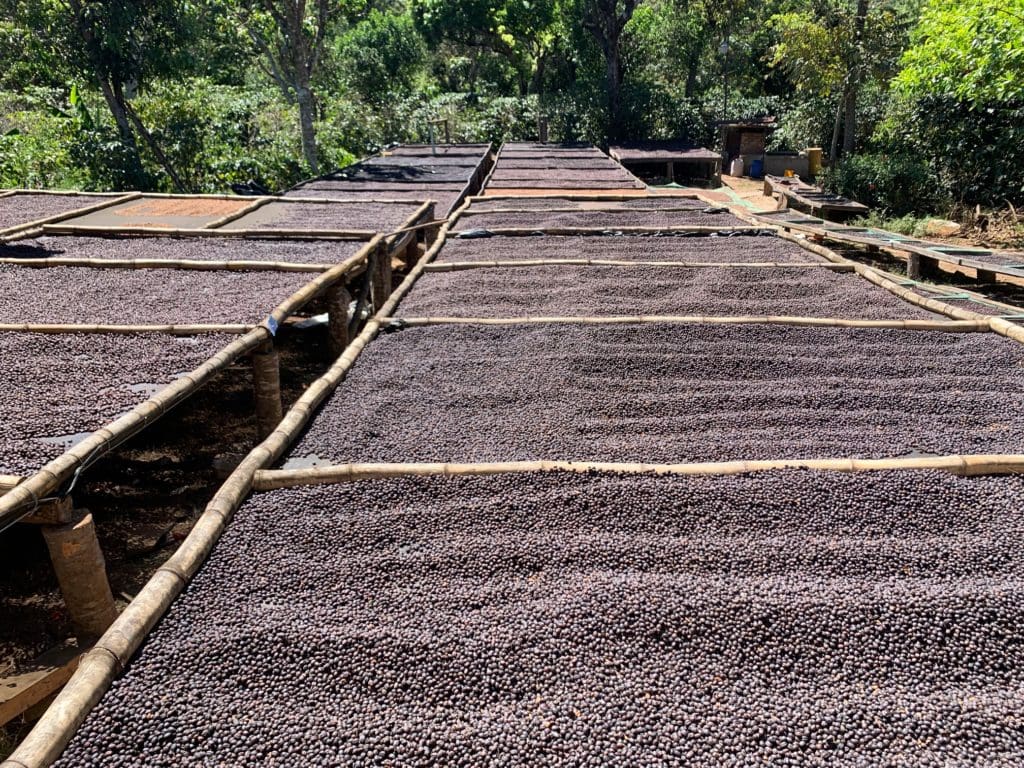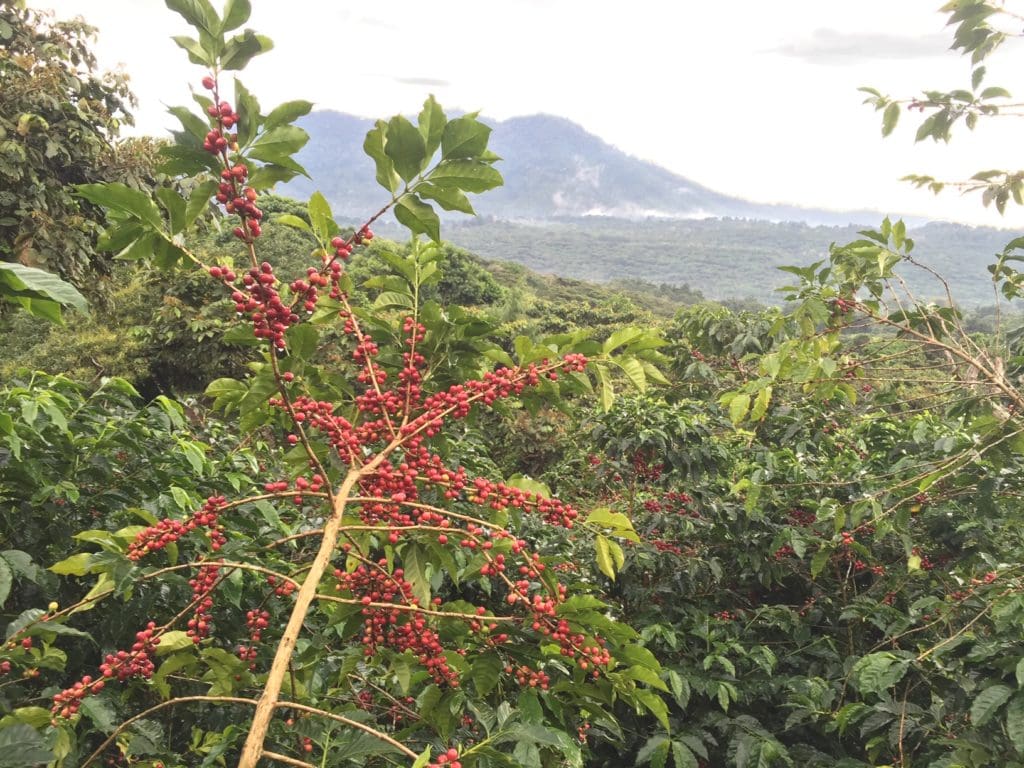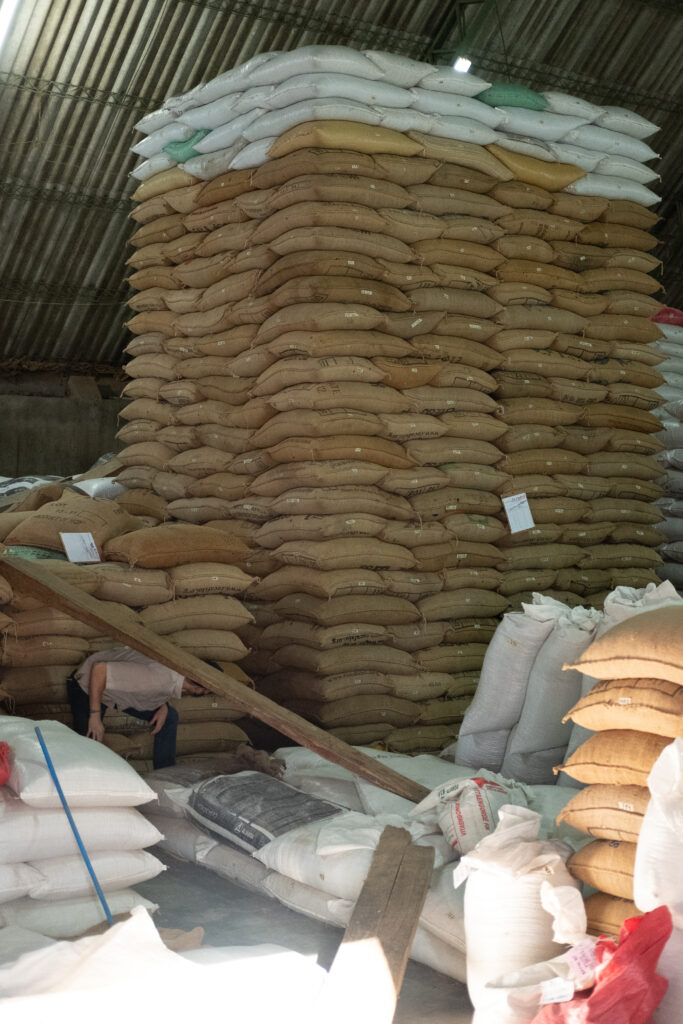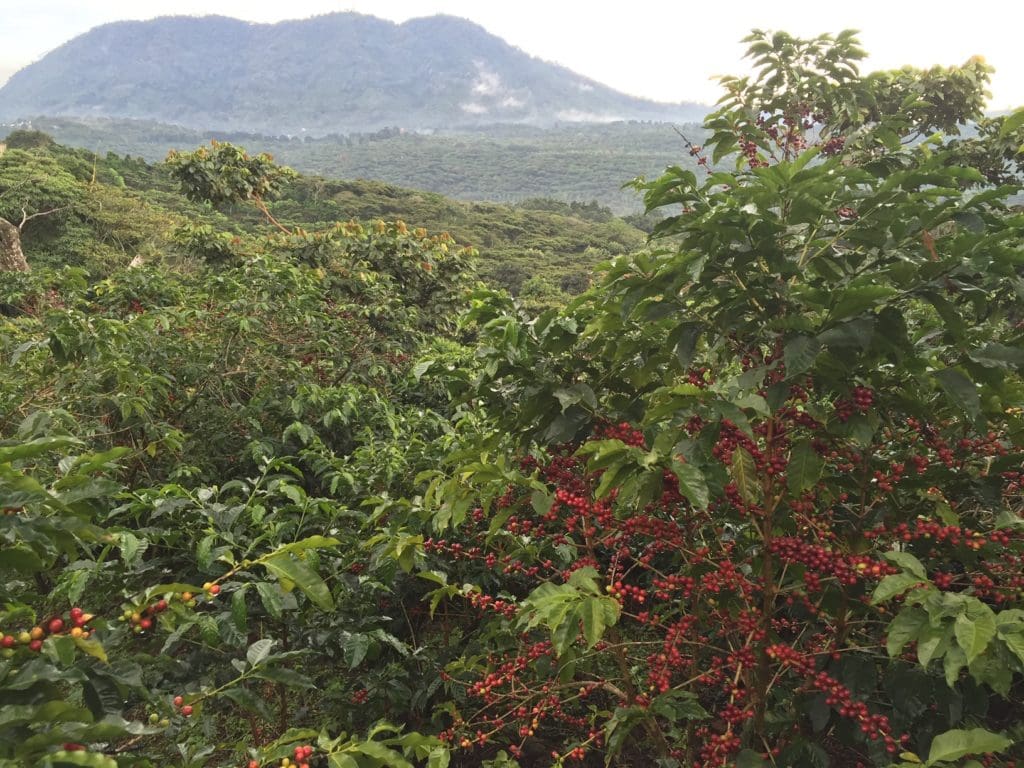Region
Apaneca-Ilamatepec
The Apaneca-Ilamatepec mountain range runs through the Ahuachapan, Santa Ana, and Sonsonate departments of northwestern El Salvador near the border with Guatemala. It was from Guatemala that the first coffee seeds entered El Salvador in the late eighteenth century. Coffee production in El Salvador began in these mountains, eventually spreading to other parts of the country.
The Apaneca-Ilamatepec Biosphere Reserve was declared by UNESCO in 2007. This Biosphere Reserve includes forest plantations, coffee plantations, grassland, and crops. There are 12 species of endangered flora and 58 threatened species, as well as 12 endemic species of birds and other animals protected here.
The Reserve includes wetlands that provide freshwater for the country: Lake Coatepeque, the Laguna Verde and the Laguna Las Ninfas. These have aquatic vegetation ecosystems and aquifer replenishment areas due to current volcanic activity.
Almost 4,000 hectares are allocated to conservation as natural protected areas, and 39,500 hectares correspond to shade-grown coffee plantations which interconnect the core zones to enable a flow of flora and fauna, thereby acting as a fundamental part of the Mesoamerican Biological Corridor.





